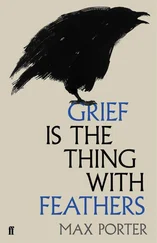“So you see, Mr. Woodhull,” Dr. Wood was saying, “how you must put your stitches through the fibrous tunic of the intestine.” He was finished with his suturing, and now he inspected his work from various angles. He took a decanter from another assistant and began to pour oil liberally over the wound. He smiled and said, “A little olive oil will facilitate the return of the bowel to the peritoneal cavity.”
Surgery made Will partial to ether. Assisting Dr. Wood, he was often assigned the role of anesthetist. He’d apply Squibb’s ether to the patient with a cone made of newspaper, a towel, and a wad of cotton. He filched small quantities and brought them home to Fulton Street for use in making collodion, and for sniffing. He liked to sit with all the lights out but the curtains open, and take little whiffs of ether until he passed into a dreamless black sleep.
It was better than hooking arteries or bowel, this ether-duty. Will never got sleepy administering the ether, but he sometimes developed a carefree attitude during the course of an operation. It made him bold.
“Doctor,” he said to a senior assistant during a multiple amputation, “please stay away from the patient’s head. You will cause her to combust.” The assistant had a lit cigar wedged between his teeth.
“She says her mother was frightened by an elephant when she was pregnant,” said Dr. Wood. The blond-headed girl on the table had been born with an extra finger and seven extra toes. Dr. Wood was pruning the girl to a better life. Whenever anyone noticed her finger she had suffered fits of hysterical blindness and St. Vitus’s dance. “What do you think of that, Mr. Woodhull?”
“I think elephants are formidable creatures, sir,” said Gob. “I think it is sensible to fear them.” Dr. Wood laughed too long and too loud. Gob’s hands, dexterous despite the congenital absence of one finger, were educated while Will looked on, wondering if his friend couldn’t take the girl’s extra finger as a replacement for his own. It didn’t seem beyond him. Under Dr. Wood’s tutelage, Gob tied off arteries and sewed up wounds, and once even opened up a skull with a Hey’s saw. Will would have liked to do some cutting of his own, but Dr. Wood seemed unlikely ever to let him. He often looked scornfully at Will’s big mashers and said, “ Those are not the hands of a surgeon.”
Many nights, Gob and Will would sit up with fresh amputees, watching over their wounds for signs of secondary hemorrhage. The patients would be arranged in their beds in a circle around the two students, with their stumps facing inward. Gob and Will would sit back to back, observing the stumps.
“I think blood is beautiful,” Gob said during one such vigil.
“You wouldn’t,” said Will, “if you’d ever been covered in it for days. It loses its charm.”
“I like it because it is perfect, because it does its work perfectly. A perfect fuel for a perfect machine.” Jolly was walking up and down the ward, not waving or speaking, just turning his head this way and that, regarding everything with sadness and longing. Will looked away from him, his attention drawn to a stump that twitched briefly, and when he looked back Jolly was gone. The spirits came and went like that.
“I hate the smell,” Will said. “And anyhow if I were less tired and more articulate I would argue that we are not perfect, body or soul.” The stump that had twitched began to bleed again, so Will leaned forward to tighten a band of elastic around it, but this was not sufficient. He had to plunge his fingers through the stitches and feel blindly under the flap, seeking to catch the leaking artery between his fingers. The patient was screaming and the sheets were soaking through.
Gob put his little hand in, too, and in a moment he’d caught the vessel and pinched it. “Ah,” he said, over the patient’s screaming. “Feel that!” Will put his finger along Gob’s and felt the blood beating. The strength and the rhythm of it did seem like a miracle, just then. “Perfect,” said Gob. “Oh, I wish I could build like this .”
Sometimes he’d feel the pressure of eyes on him as he walked, and looking back he would see them. Jolly was always out in front, taking measured, even steps. Will would keep walking, thinking they might go away if only he ignored them, but he never could. He’d look back again and again, and each time there’d be another, until there was a long train of them following him down Broadway or the Bowery or Fulton Street. They stepped fluidly among the living, never touching them even on the busiest streets, while Will, always looking over his shoulder, knocked packages from the arms of ladies, and got tangled in their parasols. “Stop following me!” he shouted, but he knew this would do nothing to deter them, and it did not.
* * *
In the lying-in ward, the women waiting to deliver kept busy making shrouds. Will wondered, as he walked among them, how many would lie buried in their work. Bellevue had a reputation as a nest of puerperal fever. Gob had switched to the second medical division after the end of the first term. Dr. Wood offered to make him a senior assistant, but Gob said he felt drawn to the medical wards, to the cholera and consumption and pneumonia. Will shadowed him there, and saw how his patients did better than others. Gob eschewed calomel and tartar emetic in all cases. He dosed the weak of heart with foxglove. He gave calcined magnesia for excessive flatulence, carbonate of soda for dyspepsia, a mixture of turpentine and gin for worms. Patients with intractable dry coughs who got no relief from syrup of squills were healed by a weird elixir. “Moss squeezings, bat’s blood, and death angel,” Gob said, and Will thought he must be joking.
They liked to go around the wards at night. The nurses were untrained and incompetent, sentenced to Bellevue to serve out ten-day terms for public drunkenness. They would find them snoring in a corner, the remains of Friday’s fish dinner smeared on their frocks, while patients called out for assistance or mercy or death. Gob and Will might turn a patient on his side so he could urinate, a veteran with a bullet in his bladder that acted as a ball valve, or sit at the bedsides of cholera patients, measuring out grains of morphine into a cup of hot water. The cholera patients had shriveled fingers. Their lips were blue, and their clammy faces were shrunken.
By January of ‘68, Will had become an assistant in the first medical division. He spent most of his time in the basement, among the alcoholics and the insane. “They are all very unreasonable down there,” he complained, when he came upstairs at night to visit Gob. “You are living the life here on the second floor, let me tell you.” He would sit on a bed and throw wadded-up gauze at a passed-out nurse, saying, “Wake up, Sairey Gamp!” or else assist Gob in taking pulses and listening to hearts and lungs. When the patients were all asleep they would sit in a window, staring at the East River and talking quietly. They both belonged to a not very exclusive club of surviving brothers.
“Sam was the companion of my youth,” Will said one night. “But then we grew distant.”
“I failed him,” said Gob, raising his hand as if to touch the full moon framed in the window. A cold wind was whipping up blue foam on the river.
“How does that happen? He was the only other person in the world, and then he was no one.”
“If I had been with him he would yet be alive,” Gob said quietly.
“He was a stranger to me, when he died,” Will said. “Do you think that’s a crime?” He looked around the room for Sam, thinking that talk of him might summon him. He wasn’t there, but Jolly was pacing up and down the ward, looking at his feet as they walked.
Читать дальше












